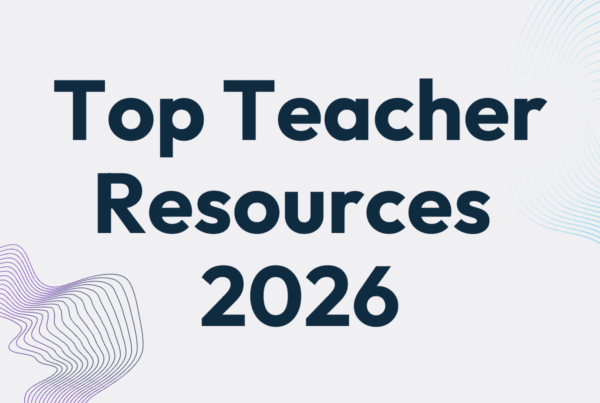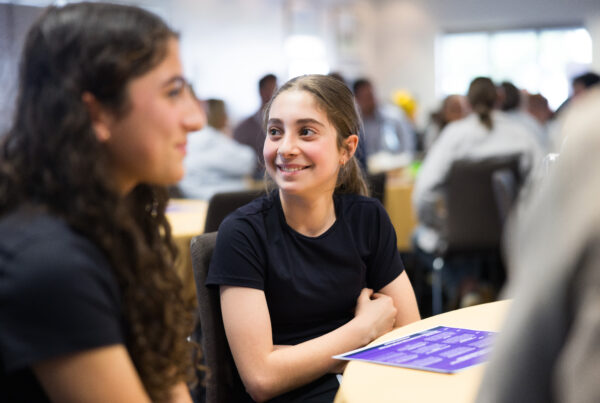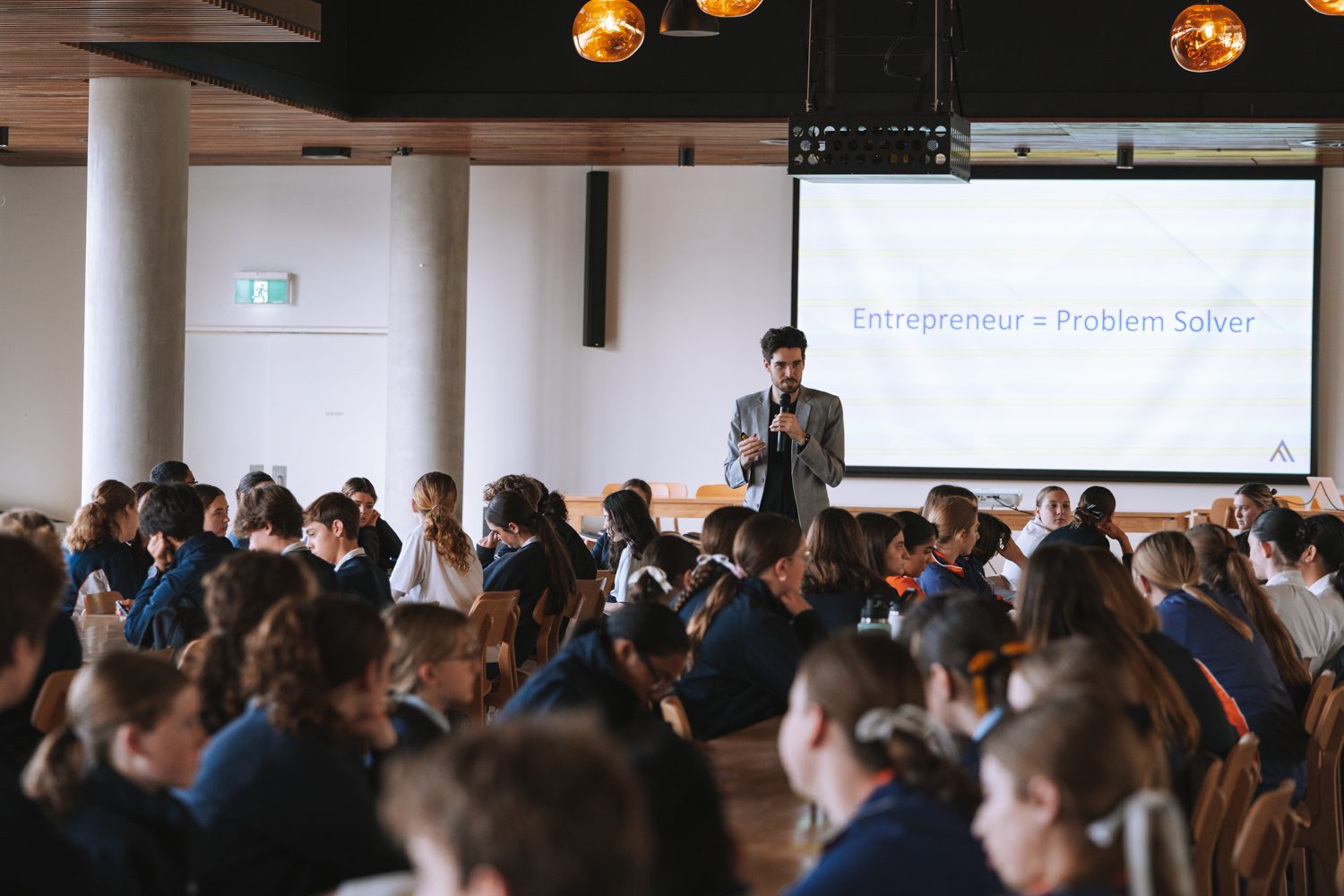
The ‘Why’ of Student Workshops
by Nicole Dyson, Founder & CEO, Future Anything
As educators, we’re constantly balancing the demands of a crowded curriculum with the call to prepare young people for an unpredictable future.
School calendars are often locked in twelve months (or longer) in advance and the overwhelm of climbing over the mountain of paperwork standing in the way of any variance to school routine seems to squash lofty dreams before they’ve ever had a chance to fly.
As we hurtle towards the end of 2025, I’ve begun reflecting on the ‘why’ of student workshops.
Since 2018, we’ve had the great joy of working directly with more than 100 000 primary and secondary young people in 300+ schools.
The evidence is clear that workshops do spark significant growth in students’ skills – from agency (81% of students feeling ownership of their learning pre-workshop to 88% after), to double-digit percentage-point gains in creative thinking, curiosity, and communication capabilities
Student workshops, when done well, are not just enrichment – they can be engines for capability-building, agency, and belonging.
But, when it comes balancing your 2026 budget, the question is… Are workshops really worth it?
Here are my four ‘whys’ for student workshops.
1. Sometimes the best professional learning is simply watching other educators in action.
When we talk about workshops, we often focus on what students gain – but, there’s an often-overlooked benefit that school leaders tell us is just as valuable: the professional learning that happens for the teachers in the room.
The best workshops don’t just engage students — they’re a live masterclass for staff.
Our whole team of Future Anything facilitators are experienced educators themselves, many with a decade or more of classroom experience.
Watching an experienced facilitator spark curiosity, manage energy, and hold a room is professional development by osmosis.
Teachers see, in real time, strategies that reignite their own practice.
Research backs this up. Classroom observation consistently ranks among the most effective forms of professional learning. Yet many teachers rarely get the chance to watch a colleague teach. In fact, a Grattan Institute report found that around 40% of teachers have never had the opportunity to observe another’s lesson — a missed opportunity for collective growth.
I remember feeling like the windows to observing practice in others’ classrooms closed at the same moment I received my degree.
As a prac teacher, I was invited into classrooms and I’d sponge something new from every lesson I observed.
But, as a fully-fledged and qualified teacher, cultivating my own pedagogical flavour sometimes felt like a very lonely and isolated journey of floundering in things I thought I should know how to do.
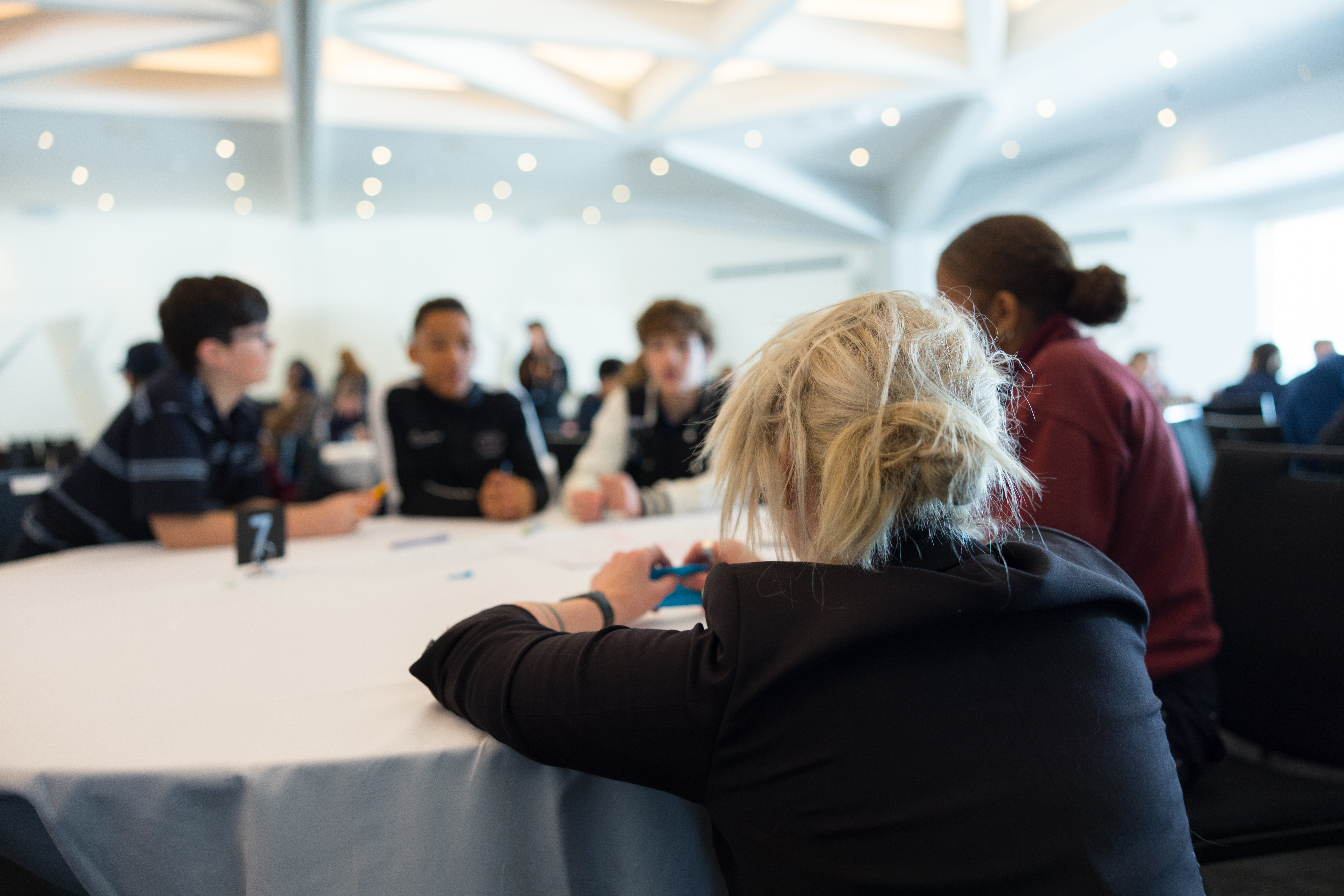
A well-executed workshop program should provide capacity-building and a reignited spark not only for the students in the room, but also for the educators that are supporting them.
2. The best workshops act as accelerants for our curriculum.
Across subjects and year levels, workshops can act as accelerants — fast-tracking achievement against key outcomes:
Year 6 (PYP) – Sustainability & the Environment
Exploring Sharing the Planet, students design and prototype sustainability solutions—like vertical gardens or water-saving systems—to apply their understanding of how human decisions and technologies can reduce resource use and support environmental balance.
Year 8 – Health & Wellbeing
In Health and Physical Education, students ideate and prototype wellbeing initiatives—like movement challenges or kindness campaigns—that apply their understanding of how personal choices and social actions influence community health.
Year 9 – School Leadership & Change
In Civics and Citizenship, students identify real challenges within their school and pitch solutions—like peer mentoring or inclusion projects— to the schools’ executive leadership team, demonstrating their understanding of how individuals and groups can influence change in democratic communities.
Year 10 – Startup & Social Enterprise
In Economics and Business, students develop and pitch ventures—like upcycled fashion brands or youth mental health apps—that apply their understanding of innovation, entrepreneurship, and the role of business in responding to social and economic change.
Workshops don’t have to rob calendars of classroom time, workshops (when timed correctly within the unit of learning) can support teachers and leaders to unlock transfer learning.
For school leaders, the question isn’t whether you can afford a day out of the timetable.
It’s whether you can afford not to.
Because when a single day helps students demonstrate the kind of progress that usually takes a term to build, that’s not time lost.
That’s time multiplied.
3. In a high-school environment, our antiquated approach to lesson structures and school calendars often disables engagement and a sense of accomplishment.
In most high schools, our structures work against immersion.
We start and stop learning so often that students rarely experience the satisfaction of seeing something through.
Workshops flip that.
In a one-day or multi-day program, students experience the full arc of learning — curiosity, confusion, persistence, failure, and finally, success — all before the bell rings.
That cycle — of challenge and success in quick succession — is what psychologists call flow (Csikszentmihalyi, 1990): the sweet spot where skill and challenge are perfectly balanced, and learners lose themselves in the task.
When you get it right, time disappears. Effort feels energising, not exhausting. And learning accelerates.
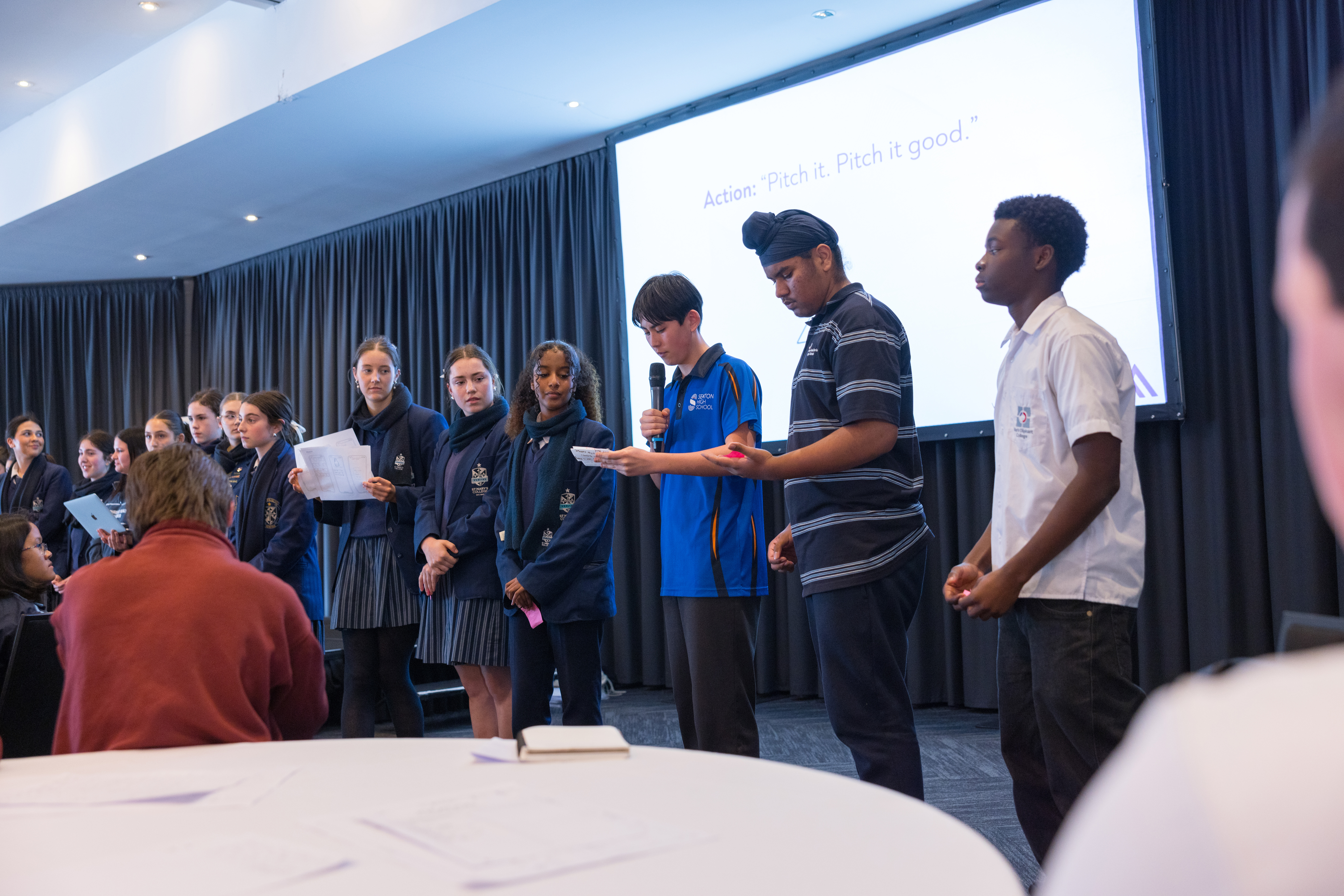
We often overestimate what we can do in a day, and underestimate what we can do in a year.
Except in a workshop — where both students and teachers vastly underestimate how far they can travel in a short time.
Goal-setting research backs this up: clear, time-bound goals increase focus and performance (Locke & Latham, 2002), especially when paired with immediate feedback and visible progress.
In other words, when challenge and support sit in balance, motivation spikes — and growth compounds quickly.
That’s what makes the pitch moment so powerful. Whether it’s a 60-second elevator pitch in Flare or a three-minute presentation in Ignite, the pitch gives young people an immediate finish line and a real audience. It transforms abstract effort into visible accomplishment.
And here’s the evidence: after our workshops, self-reported confidence in communication jumps from 48% to 57%, and teachers consistently tell us those same students participate more actively in class. The learning doesn’t fade with the day — it transfers.
Because in the end, that’s the real magic of a workshop.
It compresses the full learning journey — curiosity to capability — into a timeframe where students feel their own growth.
4. We all do what we do because someone, somewhere along the line inspired us in a way that made us question who we are now, and who we could be in our future.
Inviting external voices into our schools invites new perspectives, insights, and inspiration for our young people.
When a skilled facilitator or industry mentor says the same thing a teacher has been saying for months, it often lands differently. External experts and entrepreneurs bring fresh stories, lived experience, and credibility that can light a fire in students who might otherwise tune out.
In a world where relevance is the currency of engagement, workshops inject a dose of the real world into the school day.
When students can connect what they’re learning to who they are and what they care about, something changes.
After our workshops, three in five students tell us they’re excited to take their idea further — not because a teacher told them to, but because they want to.
Because it matters now.
For school leaders, this isn’t a “nice-to-have.” It’s a way to build belonging and aspiration — two things that sit at the heart of motivation.
Inviting external facilitators and mentors into your school signals to students that their work has meaning beyond assessment rubrics — that their community values their ideas and their voices.
So, there are my ‘whys’ for student workshops.
Let’s not bolt-on workshops- let’s bolt-in.
As we begin to look up from fog of marking, reporting, and Year 12 graduations, let’s allow ourselves the space and time to re-imagine the education we want to provide for our students in 2026 in a purposeful way, striving for enriching experiences that provide capacity building, new perspectives, and challenging opportunities to feel a genuine sense of accomplishment.
Future Anything offers a portfolio of student innovation workshops that all culminate in young people showcasing and pitching their own innovative ideas to complex challenges.
Over one, two, three or four days, our Innovation Workshops blend the best of entrepreneurial pedagogy and human-centred design thinking. Choose from one of four curriculum-aligned missions, or create your own.
Click here to Future Anything’s Student Innovation Workshops.
Subscribe to Future Anything’s regular e-newsletter to have resources delivered right to your inbox. You can sign up here.
About the author: Nicole Dyson
An experienced former school leader within the public education system in Australia, Nicole is a multi-award-winning educator and entrepreneur, and a global authority on whole-school curriculum innovation, capability development, and youth entrepreneurship.
Nic is the Founder and Chief Executive Officer of Future Anything, an educator-founded and led provider that unleashes passion, potential, and agency within classrooms, schools, and systems across Australia, and New Zealand.
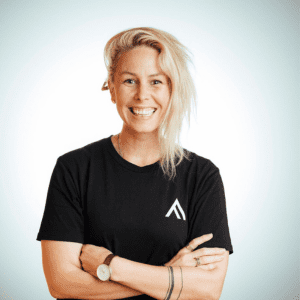
Nicole is an engaging and skilled facilitator, panellist and speaker who is a passionate advocate for equity, the future of education, and empowering young people to bend the future; one youth-led idea at a time.
Connect with Nic on LinkedIn here or Twitter here.



